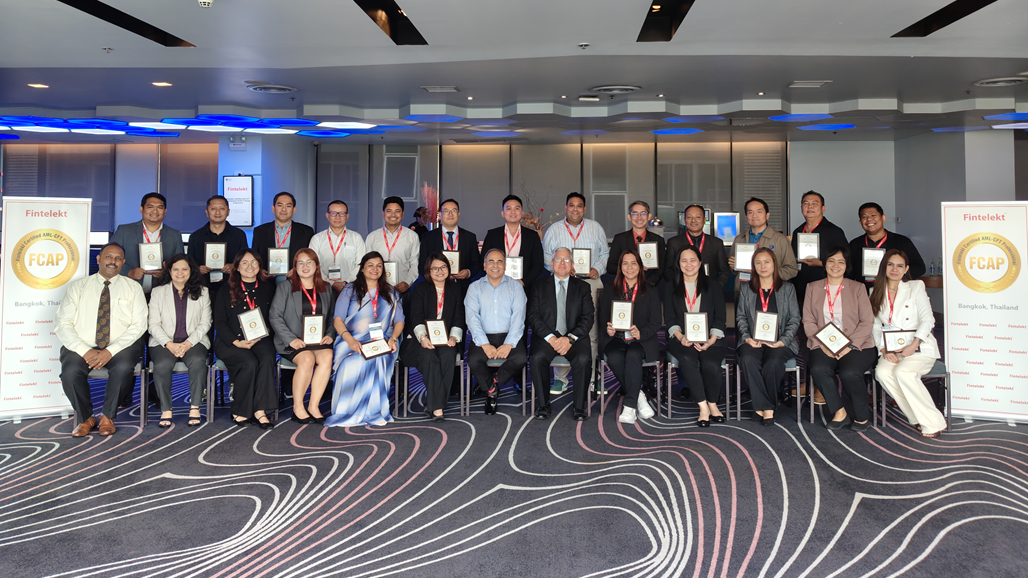The Asian Bankers Association (ABA) and Fintelekt Advisory Services, an ABA Knowledge Partner, successfully co-organized the Fintelekt Certified AML/CFT Professional (FCAP) on 19-20 June 2025 in Bangkok, Thailand.
Fintelekt Certified AML/CFT Professional (FCAP) was a 2-day intensive course designed as a comprehensive and practical masterclass for aspiring and practicing AML/CFT professionals to learn and stay updated with the latest tools, techniques and developments in anti-money laundering (AML) and combating the financing of terrorism (CFT).
The FCAP programme was held at Hotel Aloft in Bangkok on 19th and 20th June 2025. Professionals from institutions across Asia from private as well as public sectors joined the programme.
FCAP Programme – Day One
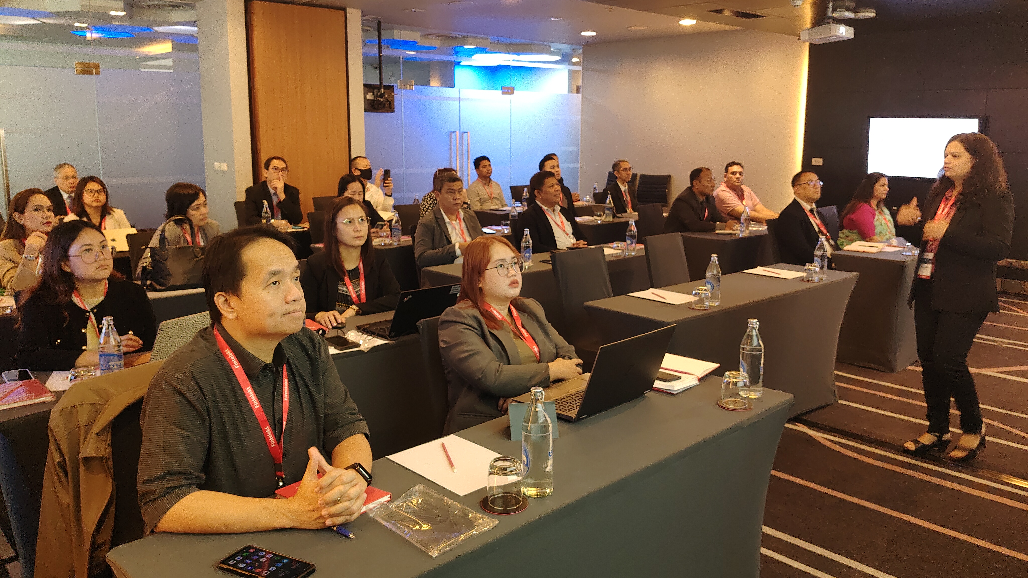
Arpita Bedekar, Chief Operating Officer, Fintelekt Advisory Services Pvt Ltd (Fintelekt) set the context, explaining that FCAP was introduced in response to a pressing regional need for an advanced training and certification programme that can help demonstrate a commitment and contribute towards building a stronger AML/CFT regime in the institution, country as well as the global financial system.
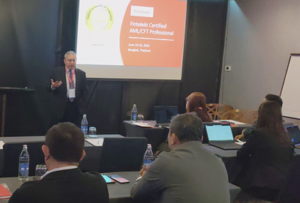 Mig Moreno, Deputy Secretary-Treasurer, Asian Bankers Association, stressed upon the importance of continuous learning and skill development in the continuously evolving financial crime environment. He also highlighted the role of the Asian Bankers Association in bringing together bankers and other members of the financial services community to collaborate and cooperate on issues of strategic importance.
Mig Moreno, Deputy Secretary-Treasurer, Asian Bankers Association, stressed upon the importance of continuous learning and skill development in the continuously evolving financial crime environment. He also highlighted the role of the Asian Bankers Association in bringing together bankers and other members of the financial services community to collaborate and cooperate on issues of strategic importance.
He spoke about the recent bill passed by the U.S. Senate to create a regulatory framework for U.S. dollar-pegged cryptocurrency tokens known as stablecoins, in a watershed moment for the digital asset industry. He highlighted how a new asset group has been created after nearly four centuries and that no compliance professional can afford to ignore the changes that are coming.
Vikas Tandon, Trainer, Fintelekt started the day’s discussions and drew upon his practical experiences to start with fundamental aspects of AML and CFT, i.e., a strategic understanding of AML/CFT risks and the application of a risk-based approach.
He highlighted the need for a strong AML governance framework, balancing AML compliance and business priorities in accordance with the defined risk appetite of the organization and the consequences of non-compliance.
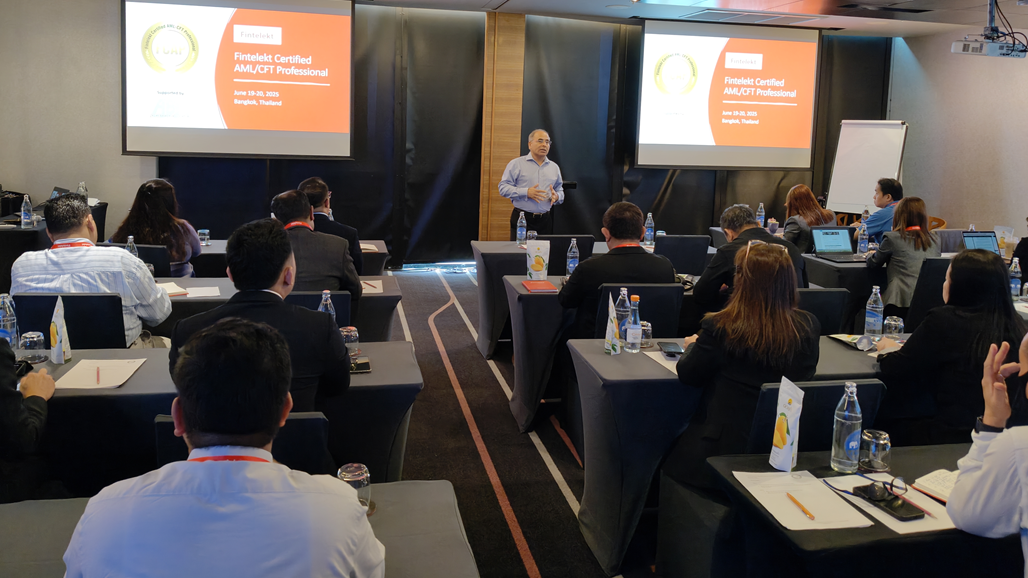
He further explained the changing role of an AML compliance professional in the organisation. From a cost centre, the compliance officer’s role is now pivotal and responsible for protecting the organisation’s reputation and credibility. Regulators are imposing heavy penalties for negligence in compliance on the one hand, while financial criminals are getting smarter by the day.
Training Sessions – Day One
Naomi Doak, Regional Coordinator, Counter Wildlife Trafficking, representing the Bangkok office of the Wildlife Conservation Society was a Guest Speaker at the programme on day one. She spoke to participants about regional trends in wildlife trafficking and environmental crimes including the growing nexus with organised criminal activity and emerging money laundering typologies in the region.
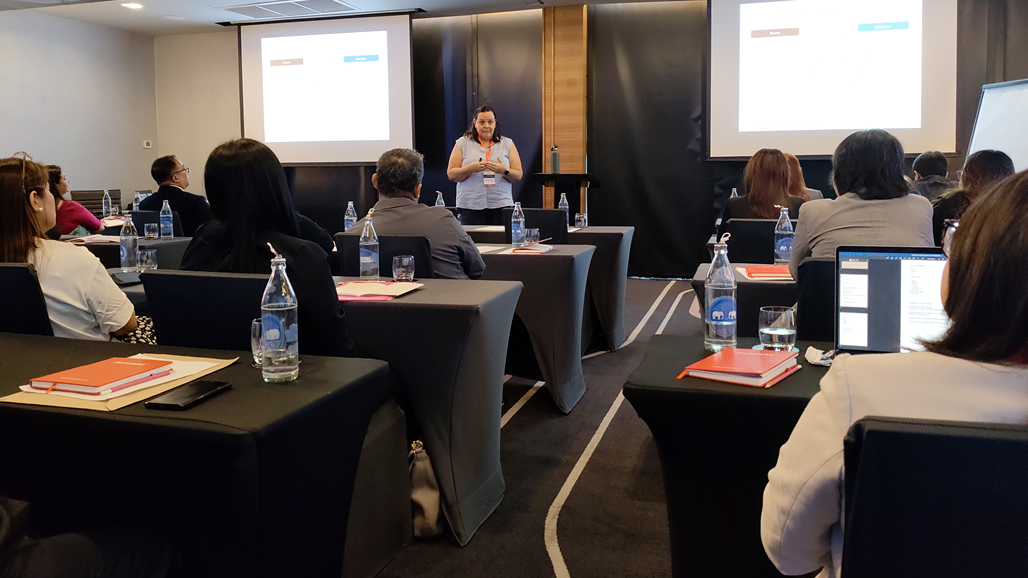
She stressed on how FATF evaluations are imparting an increasing weightage on the country’s effectiveness in combating environmental crimes, especially in high-risk regions in Asia. She also appealed to the compliance community for a collaborative approach and better use of technology and monitoring skills to detect and report wildlife trade related payments.
Group Work – Day One
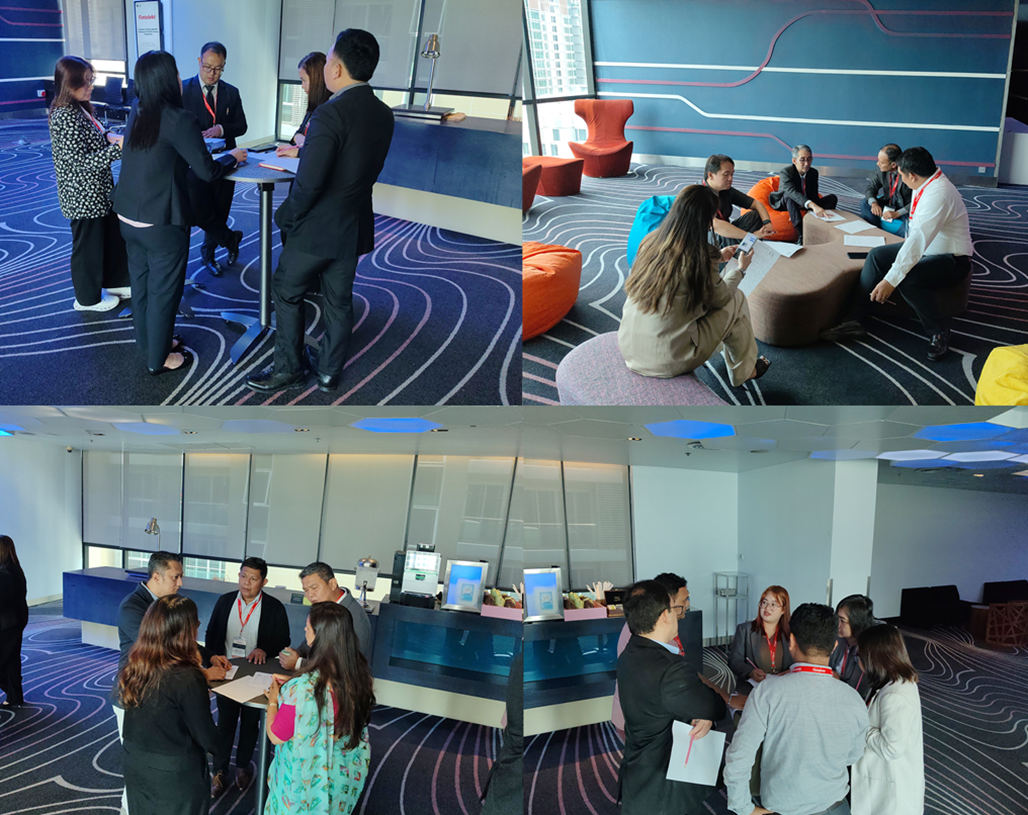
For the group activity on Day One, the participants were divided into four groups and were asked to analyse ML/TF risks and design mitigation strategies for certain financial products as a group. Vikas facilitated the discussions.
A group-leader from each group collated and presented the findings of the analysis conducted by their group, which was then summarised and concluded by Vikas.
Training Sessions – Day Two
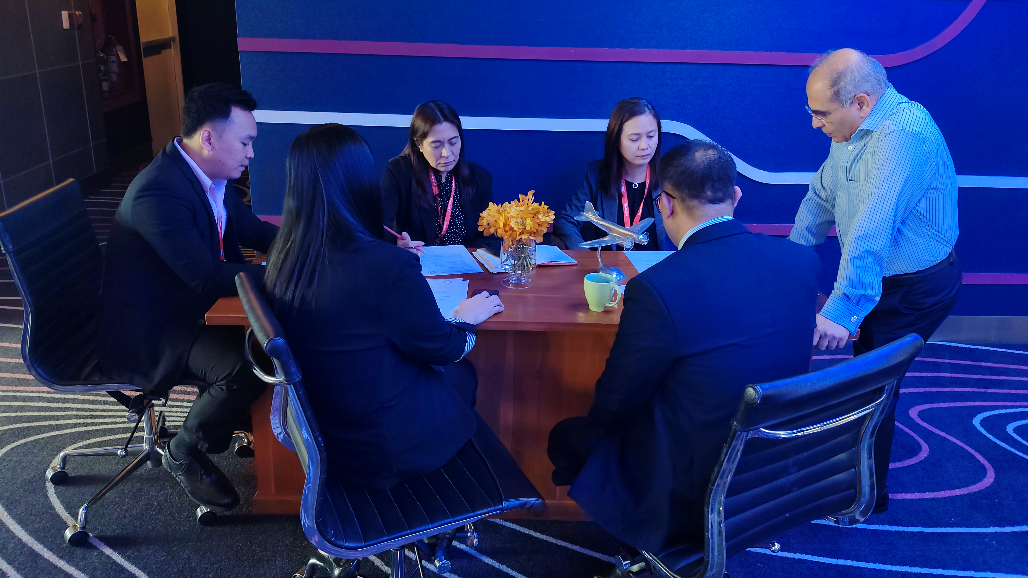
In the opening session on Day Two, Vikas took the participants through emerging risks from digital payments, fintechs and virtual currency. The session provided an opportunity to the participants to clarify their questions on cryptocurrencies and understand how to mitigate risks from cryptocurrencies in their day-to-day roles.
The session concluded with a hypothetical case of a virtual asset service provider, which the group analysed. They were able to draw practical conclusions and lessons from the case from different perspectives – that of a regulator, bank, and the crypto exchange.
Training Sessions – Day Two
Vikas Tandon continued the training programme and steered the participants through changing priorities on screening and due diligence, including key sanctions risks and screening, the risks from politically exposed persons (PEP) and adverse media monitoring.
The session also discussed ultimate beneficial ownership (UBO) and the risks associated with legal persons, corporate vehicles and arrangements and methods for establishing beneficial ownership and source of funds.
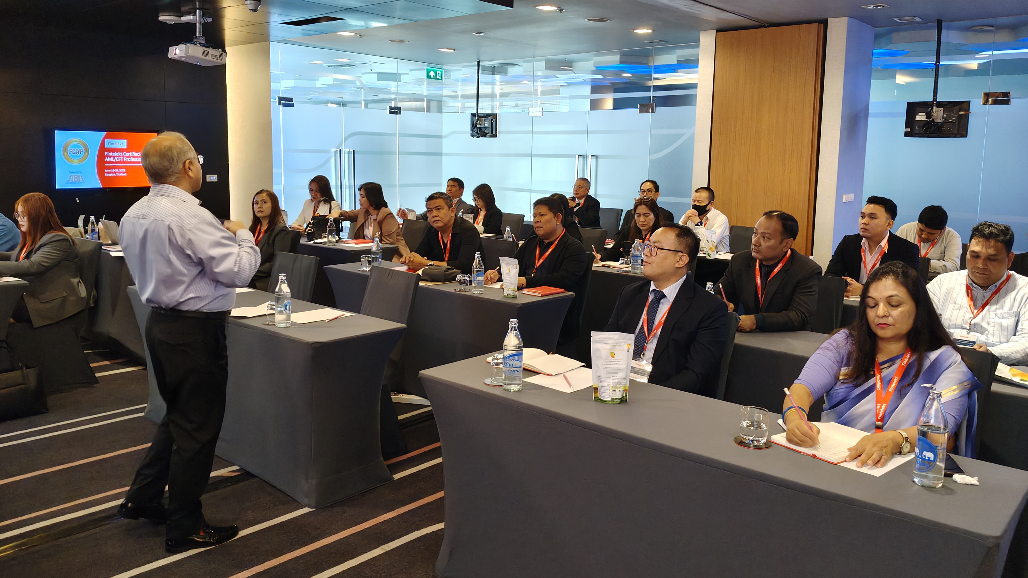
The next session on trade-based money laundering included an understanding of risks involved in financing trade, and due diligence measures to detect suspicious transactions. Vikas went on to cover the terrorism financing process, cross-border risks, proliferation financing, the difficulties faced in identifying proliferation financing and proliferation financing risk assessments.
The last and most important session on transaction monitoring focused on the methods to have an understanding of the normal and reasonable activity of the customer, so as to be able to identify transactions that fall outside the regular pattern of activity.
Group Work – Day Two
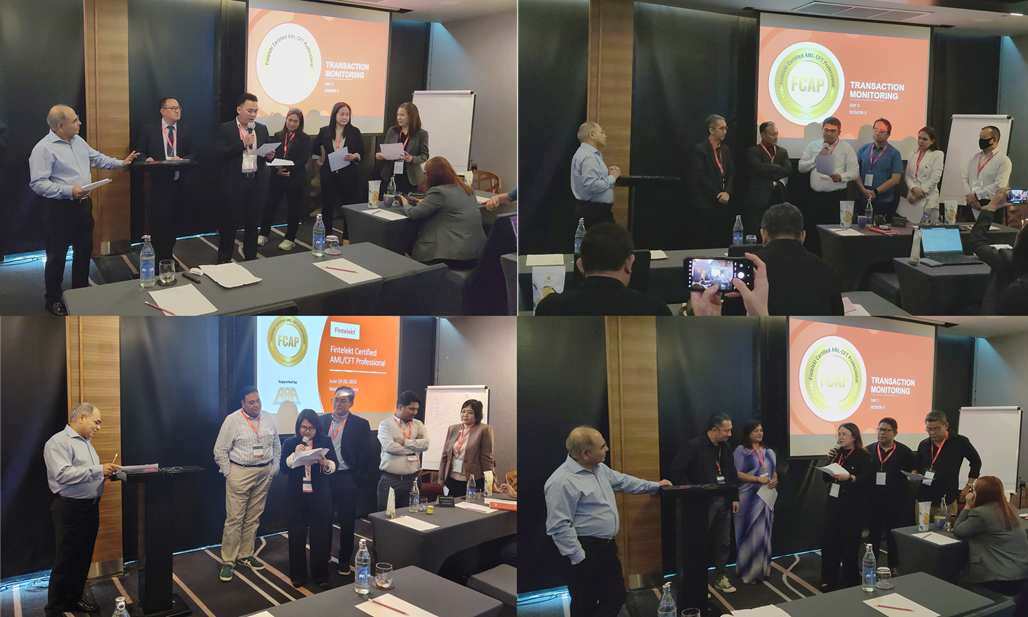
Participants were provided cases around transaction monitoring. Their task was to identify red flag indicators for the cases within their group.
A group-leader from each group collated and presented the findings of the analysis conducted by their group, which was them summarised and concluded by Vikas.
Participation
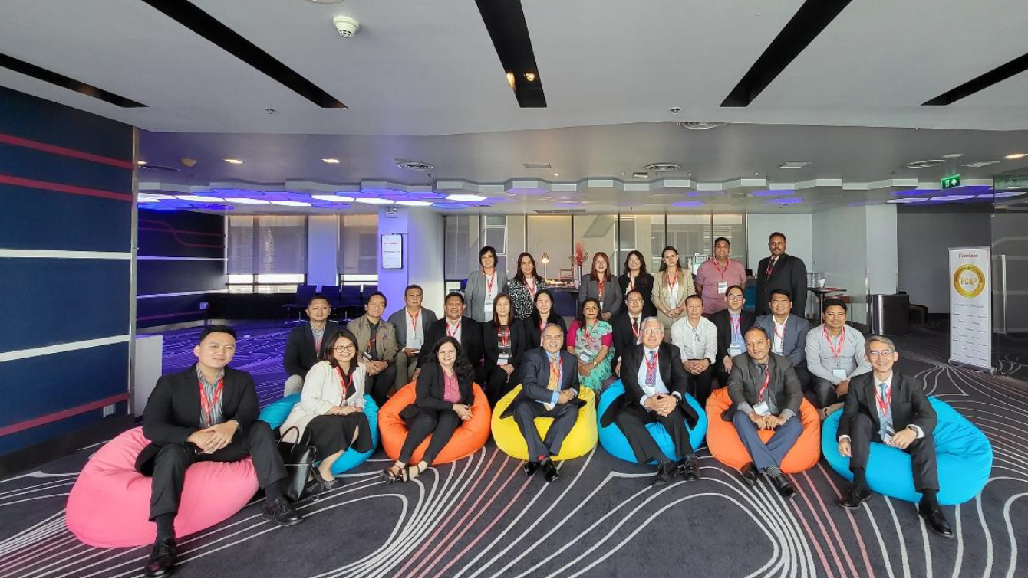
The FCAP programme in Bangkok was well-attended, with 22 participants from banking, fintech, regulatory and supervisory institution across three countries in Asia including Bhutan, Philippines and Nepal.
List of Participating Institutions:
- Anti-Money Laundering Council Secretariat, Philippines
- Bangko Sentral ng Pilipinas, Philippines
- Bank of Bhutan Ltd., Bhutan
- eSewa Ltd., Nepal
- Hann Philippines Inc.
- Himalayan Bank Ltd., Nepal
- Philippine Amusement and Gaming Corporation (PAGCOR), Philippines
- Securities and Exchange Commission, Philippines
- Top Bank Philippines, Inc.

